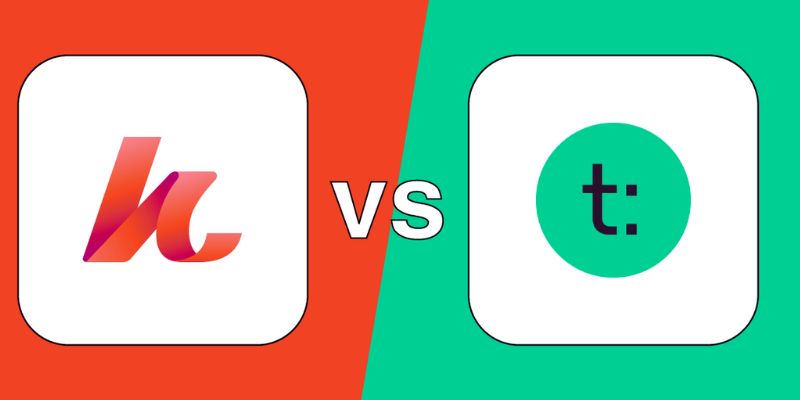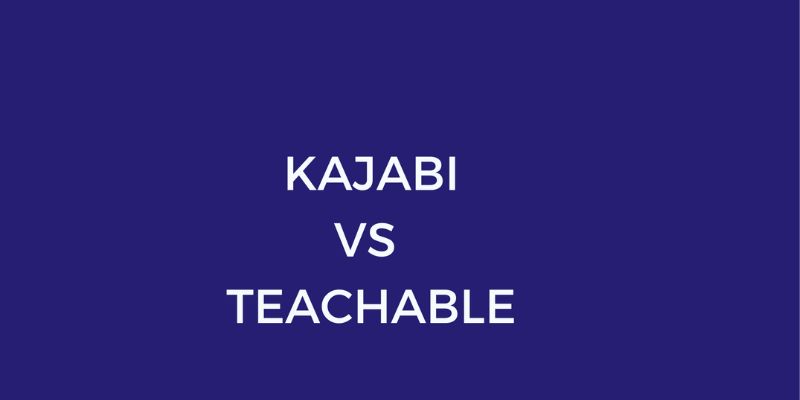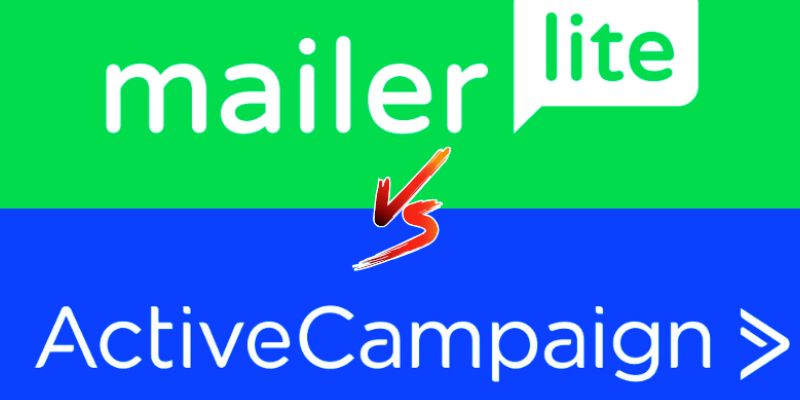Kajabi vs. Teachable: Which Online Course Platform Should You Choose in 2025
Advertisement
Especially considering the abundance of choices available, selecting the correct online course platform can be taxing. Two of the most often used systems if you want to design and market courses are Kajabi and Teachable. Though they meet different purposes, both have special qualities that enable course developers to flourish. Often commended for its simplicity, Teachable is a great starting point.
Kajabi—a powerhouse loaded with sophisticated marketing and automation tools—is perfect for companies trying to scale. In this article, We will discuss the features, simplicity of use, cost, and more so you may choose which platform best fits your needs. Knowing these main variations will enable you to choose the appropriate fit for your online courses, regardless of the size of your company—just starting or expanding.

Ease of Use: Which One is More Beginner-Friendly?
When starting your first online course, simplicity of use is rather crucial. Teachable is renowned for being straightforward to use. You can use it without being tech-savvy. Its methodical construction guides you through the complete process. A few clicks will let you add text courses, upload videos, and design tests. All of it is rather neat and understandable. If you have never created courses, Teachable is a wise option.
On the other hand, Kajabi is more advanced. It boasts more options, including CRM, email marketing, and website construction. These are excellent for expanding your company, but initially, they can feel overwhelming. Kajabi's UI is strong, but learning it could take some time. Teachable is simpler and faster to set up for total beginners. Kajabi could be worth the learning curve if you intend to grow later.
Course Creation Tools: What Can You Build?
Both Teachable and Kajabi provide strong instruments for creating courses. Teachable lets you upload endless videos and arrange them into sections and lessons. Additionally included are material, tests, PDFs, and other resources. Excellent for student involvement, a drip content option lets you deliver classes over time. For most course designers, it's basic yet sufficient. Kajabi adds more yet has the same qualities.
You can design complete programs, coaching tools, and even membership sites. It provides blueprints enabling the rapid creation of course materials. Kajabi also features automated triggers, allowing you to unlock lessons depending on user behavior or send emails. It will keep students interested without having you handle everything. Teachable provides, all told, everything you need to get going.
Website and Design: Which Looks Better?
People initially view your course website; hence, it should seem great. Teachable provides a basic website to house your lessons. You can pick fonts, modify colors, and add your logo. However, you have little influence on layout and design. If you want something basic that starts working straight away, it's fantastic. But Kajabi offers you far more design authority. You can create not only course pages but also whole websites.
Custom sales funnels, blog entries, and even landing pages are addable. Kajabi presents exquisite modern and mobile-friendly themes. The layout can be altered, and custom sections can be added. If branding and design are important for your company, Kajabi stands out. It makes your online classroom seem sleek and businesslike. Teachable is restricted but quick and neat.

Marketing and Sales Tools: Which One Helps You Sell More?
If you want your course business to expand, marketing is vital. Teachable provides a few naturally occurring tools for your use. Coupons, bundles, and upsells are yours to devise. Additionally, you can create a basic sales page and link to PayPal and Stripe payment systems. Teachable does, however, lack more advanced marketing tools. Tracking leads or email campaign calls for outside apps.
On the other hand, Kajabi is designed for marketers. It covers everything—email marketing, sales funnels, lead forms, and a CRM—in one location. You can follow up with students, create whole campaigns, and send emails automatically. It also backs customer journeys and A/B testing. Track who purchases your courses and opens your emails. If you wish to handle all of your marketing without using many other solutions, Kajabi is ideal.
Pricing and Plans: Which Platform Fits Your Budget?
Choosing a platform depends much on pricing. For novices, Teachable is less expensive. It provides a free plan that enables you to try the platform with limited capability. Its basic package calls for $39 a month. It provides access to sales tools, fundamental support, and course materials. Growing calls for premium plans with comprehensive reports, affiliate marketing, and coaching capabilities.
Kajabi, on the other hand, cost more. Though you can try it for 14 days free, it has no free plan. Its lowest monthly package runs at $149. That covers all—classes, email, website, and marketing tools. Higher-tier plans enable you to handle more contacts, team members, and goods. So, if you want to start small, Teachable is fantastic. If you want everything contained in one location, Kajabi is excellent.
Integrations and Third-Party Tools
Integrations let your course platform interact with other products you rely on. Teachable supports a great variety of other apps. Mailchimp, Zapier, Google Analytics, and many more are easily connected. It gives flexibility, particularly if you now use these technologies for data tracking or email. For sophisticated features, Teachable usually depends on additional programs.
You will have to oversee several accounts to create a whole corporate system. Kajabi also backs significant connections, including Stripe, ConvertKit, and Zapier. Still, it boasts several built-in elements, including email, forms, and landing pages. You need fewer additional instruments. It simplifies the management of your IT stack. Everything inside one platform works together. Teachable allows you such freedom if you like tools for picking and combining.
Conclusion:
Ultimately, Kajabi and Teachable provide excellent tools for course designers, even if they serve different uses. Teachable is an excellent choice for beginners because of its low cost and simple UI. It's free of complications and offers everything you need to build and market courses. On the other hand, Kajabi is a stronger platform for those wanting to expand. Growing businesses find it ideal with its advanced marketing tools and personalizing options. Your needs will eventually determine the platform; if you are starting, Teachable is the best choice; if you want long-term development, Kajabi is the better.
On this page
Ease of Use: Which One is More Beginner-Friendly? Course Creation Tools: What Can You Build? Website and Design: Which Looks Better? Marketing and Sales Tools: Which One Helps You Sell More? Pricing and Plans: Which Platform Fits Your Budget? Integrations and Third-Party Tools Conclusion:Advertisement
Related Articles

The 6 Best Payroll Systems in 2025: Streamline Your Business Operations

6 Audio Player Apps on Android That Don’t Waste Your Time

Boost Your Workflow with the Best Productivity Apps for iPhone in 2025

ClickFunnels vs. ActiveCampaign: A Comprehensive Comparison for 2025

Kajabi vs. Teachable: Which Online Course Platform Should You Choose in 2025

HubSpot vs. Salesforce: Which Is Right for Your Business in 2025

Asana vs. Basecamp: Find the Best Fit for Your Projects in 2025

Top Backup Solutions for Google Workspace You Can Rely On

The 6 Best Note-Taking Apps in 2025: Stay Organized and Efficient

Best Password Managers for Safari and macOS

MailerLite vs. ActiveCampaign: Which Email Automation Platform Wins in 2025

 novityinfo
novityinfo